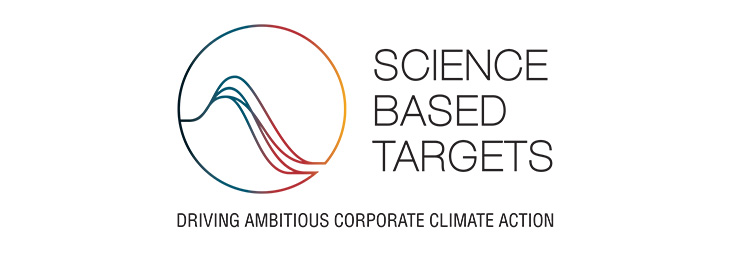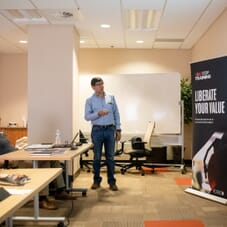Molycop has announced it will pursue science-based sustainability targets to reduce its carbon footprint and foster a sustainable future for all.
Key Facts
- Molycop has signed up to the Science Based Targets initiative (SBTi), a global climate action movement dedicated to grounding emissions reduction targets in climate science.
- Molycop joins more than 4000 global companies in making a commitment to meet ambitious decarbonisation targets.
- The Intergovernmental Panel on Climate Change (IPCC) states that global warming must not exceed 1.5°C above pre-industrial temperatures if the globe is to avoid the catastrophic impacts of climate change.
The SBTi has accepted Molycop’s commitment to set science-based targets for its emissions reductions, putting Molycop on a clearly defined path to reduce its emissions in line with Paris Agreement goals.

Taking concrete action on emissions reduction is a strategic imperative to ensure Molycop wins in a low-carbon future. Setting stringent sustainability targets is critical for Molycop’s customers, who have their own sustainability objectives to meet. And it’s critical for ensuring the wellbeing of Molycop’s employees and the communities in which the company serves.
Molycop is the only company of its kind to make a commitment this substantial to reducing its carbon footprint.
I can see no better way to hold ourselves accountable to our sustainability principles than to commit to the SBTi’s science-based targets.
—Jim Anderson, Molycop CEO
Molycop leads by example
Molycop joins more than 4000 businesses worldwide to have taken ambitious climate action by signing up to the SBTi. Significantly, Molycop’s commitment puts it in step with many of its customers who have agreed to set carbon reduction targets grounded in science.These include customers such as Freeport-McMoran, Newmont, Vale, Gold Fields, Fortescue, Arcelor Mittal and Harmony Gold Mining.
Jim Anderson, Molycop Chief Executive Officer, said the decision to set targets in line with SBTi criteria offered clear proof of Molycop’s carbon reduction ambitions.
“Molycop strives to minimise its environmental footprint by incorporating sustainability principles throughout its entire business operations,” Anderson said. “That means practising responsible resource management, investing in operational efficiencies and actively pursuing emission and waste reduction initiatives.
“Our intention is to set an example that companies who are not yet SBTI signatories can follow.”
Molycop’s commitment to the SBTi demands that it measure and reduce its scope 1, 2 and 3 emissions. Included in Molycop’s decarbonisation strategy are plans to:
- reduce gas consumption by implementing efficiencies and developing a gas-to-electrification plan
- accelerate self-generation projects to reduce reliance on fossil fuel powered grids
- pursue renewable electricity Power Purchase Agreements (PPAs)
- develop a green certificate offset strategy
- qualify scrap-fed and DRI-fed EAFs across the steelmaking universe and reduce BOF ex China and in South America
- develop a procurement and pricing strategy for low-emission steel and grinding media.
How do science-based targets work?
Sustainability targets are considered ‘science-based’ if they are in line with what climate science indicates is necessary to meet the goals of the Paris Agreement – limiting global warming to 1.5°C above pre-industrial levels.Now that Molycop has been accepted to set science-based decarbonisation targets, the company’s profile will appear on the SBTi website and its status will show as ‘committed’.
Molycop will have up to 24 months to develop emissions reduction targets in line with SBTi criteria. Thereafter, it will present its targets to the SBTi for official validation, announce its targets and inform its stakeholders. Molycop must then disclose company-wide emissions and track its target progress on an annual basis.
By adhering to science-based targets, organisations such as Molycop vouch that they will decarbonise their operations to prevent the worst impacts of climate change. In doing so, they commit to being a force for positive global change.






